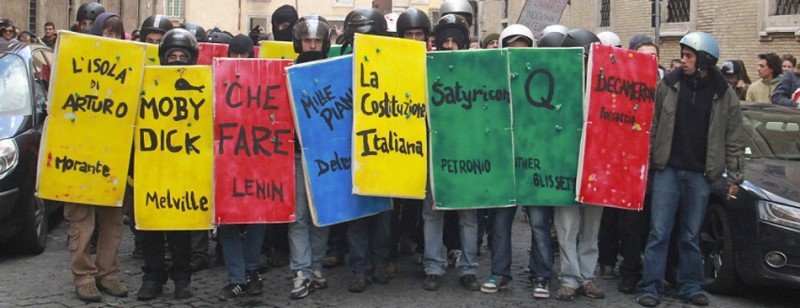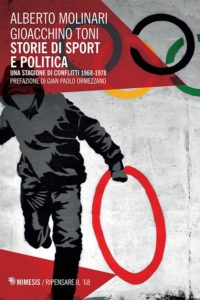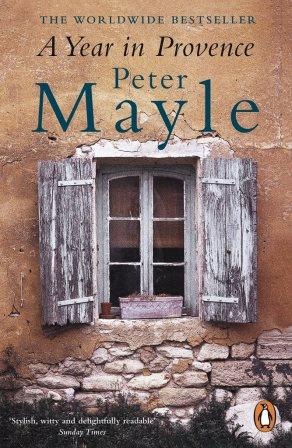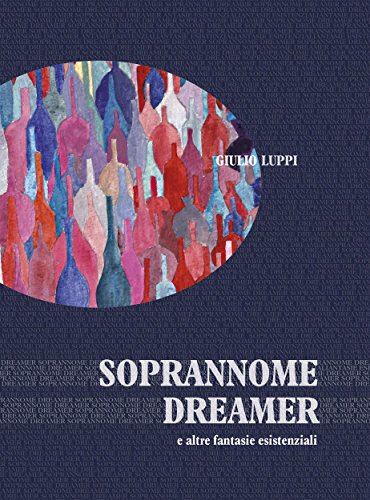’68 – Ce n’est qu’un debut… (Paolo Brogi) – Storie di sport e poltica (A. Molinari, G. Toni) – A Year in Provence (P. Mayle) – Soprannome Dreamer (G. Luppi)

’68 – Ce n’est qu’un debut…
Quest’anno è il cinquantesimo del ’68. Io allora frequentavo le scuole medie e guardavo gli studenti del liceo di fronte alla mia scuola scendere in strada per manifestare. Non capivo perché lo facessero, perché non andassero in classe a studiare. Lo avrei capito poco dopo, quando io stesso frequentai quella scuola e mi unii a quella protesta. Quello è stato il momento cruciale della mia formazione, sono stato quello che sono stato, ho fatto quello che ho fatto, sono così ora grazie a quell’esperienza irripetibile. Anche nel tradimento: pensavamo che che ‘un mondo diverso fosse possibile’ ma la direzione che il mondo ha preso rispetto ai nostri sogni è quella opposta. A ben vedere, però, molti diritti civili ed emancipazioni sociali sono eredità di quella stagione, anche se oggi cantare We Shall Overcome ai sit-in è un po’ fuori tempo massimo. Ma, come canta il boss, Never Give Up On a Dream.
This year is the fiftieth anniversary of the so-called ’68. I then attended middle school and watched the high school students on the other side of the street go down the street to demonstrate. I couldn’t understand why they did it, why they did not go back to class to study. I would have understood it soon after, when I myself attended that school and joined that protest. That was the crucial moment of my growing up: I have been what I have been, and I have done what I have done so far, thanks to that unique experience. Even in betrayal: we believed that ‘a different world was possible’ but the world has taken the opposite direction from our dreams. Nonetheless, to look more carefully, many civil rights of today and, in general, social emancipation are legacies of that season, even if today singing We Shall Overcome at sit-ins is a bit out of time. But, as the Boss sings, Never Give up a Dream.
Il libro ’68 – C’est ne pu’ un dèbut… storie di un mondo in rivolta del giornalista Paolo Brogi (Imprimatur, 2018) è una cronaca di quell’anno irripetibile, in Italia, in Francia, negli USA, nel mondo. Messi insieme, questi episodi mostrano un ribellismo e una volontà di lottare che oggi sembra preistoria, nel nostro mondo sedato da politica trash e tecnologia strizzacervelli. Non cercate in questo saggio le motivazioni del ’68, questo non è un libro di storia, ma un resoconto quasi giornalistico.
Come si legge nell’introduzione: un anno che ha segnato il mondo intero e che a mezzo secolo di distanza fa ancora parlare di sé, ripercorso in un caleidoscopio di situazioni con la voce dei suoi protagonisti, attraverso una raccolta minuziosa di preziosi frammenti e immagini, con storie inedite e testimonianze di chi c’era. Dai muri alle strade, alle scuole, alle fabbriche, alle piazze, lo scossone che cinquant’anni fa ha cambiato la rotta del mondo abbattendo barriere con allegria, altruismo, effervescenza e generosità. Da Roma a Berlino, passando per New York, Parigi, Tokyo, Milano, Chicago, Trento, Pisa, Torino, Dakar, Rawalpindi, Belgrado, Praga, Varsavia, Istanbul, Rio de Janeiro, Città del Messico, il racconto di quella stagione insuperabile di speranze e rivolta che fu il ’68.
Protagonisti assoluti di quella stagione furono gli studenti che si ribellarono all’istruzione asservita al potere conservatore, che, nell’ambito della scuola, aveva nei presidi i primi baluardi di tale conservazione. Ma a ben guardare c’erano anche capi d’istituto illuminati, come il libro racconta in Presidi illuminati nel ’68: preistoria.
Da non perdere: intrigante, esaustivo, inedito e inaspettato. Una ricerca rigorosa che mette in evidenza i legami stretti ma poco considerati tra sport e politica. Spazza via lo stereotipo dello sport come isola felice, ci riporta ai pugni chiusi delle olimpiadi messicane del ’68, al fallito boicottaggio della finale di Coppa Davis del ’76, al Mundal argentino dei desaparesidos del ’78, alle intriganti analisi ‘sessantottine’ dello sport come arma borghese. E dipinge anche un’Italia provinciale nella quale c’erano però anche teste pensanti in quest’ambito. Il tutto inquadrato storicamente in modo essenziale ed efficace. Lettura piacevole, non un pregio da sottovalutare per un simile saggio.
Il ’68 apre una stagione di conflitti che si riverberano anche nell’universo dello sport, facendo emergere le contraddizioni inscritte in uno dei più importanti fenomeni di massa e mettendo in discussione la sua presunta neutralità e separatezza.
Considerati tradizionalmente luoghi chiusi e pacificati, gli spazi dello sport, investiti da diverse forme di protesta, vengono riconfigurati come spazi aperti e contesi. Nell’intreccio tra sport e politica emerge la crisi di legittimazione delle concezioni e delle istituzioni sportive tradizionali, alle quali vengono contrapposti modelli e pratiche alternative.
For an Englishman, going South to Provence is for sure an amazing experience, just like for an Italian like myself, even if for opposite reasons. The Mediterranean pleasures of Provence – the climate, the sea, the food, the open-hearted people – can be found everywhere in Italy, but the real difference is that the functioning civil society of France is nowhere to be found in my country. It is a fact easy to check: visit Ventimiglia than cross the ex-border to Menton; Ventimiglia if falling to pieces, Menton is a shining pearl.
Like most European artists, Mayle settled down in Provence and wrote this entertaining book just reporting his first year there. Nothing extraordinary happens, but the book is so entertaining because of its language and wit. Drenched in benevolent sarcasm and very British humour, Mayle’s style is easy-going and smooth. The bunch of characters and the minor everyday incidents that make the book catch the feeling and the atmosphere of the place delightfully. The people of Provence are ordinary people, funny and good-hearted: the writer makes them shine because he sees them from a different perspective and finds their attitudes and habits, which are normal for the Mediterranean dwellers, strange and amusing. For example, he complains about bureaucracy and the fact that workers never stick to the planning they make. True, but compared to Spain or Italy, Provence is Swiss-like. And no doubt the combination of Mediterranean pleasures and the French efficient social order makes it one of the best places to live in Europe, the area where the best of Northern and Southern modes meet.
Mi è venuto subito in mente Dubliners di Joyce. Prosa fintamente minimalista, grande attenzione ai personaggi, alle loro sensazioni e sfumature oltre le loro azioni. Piccole storie, anche un po’ surreali, che nell’insieme danno un quadro d’autore, un ritratto di una luogo e di un’epoca (Modena e i seventies), anche se il libro non ha una ambientazione specifica. Gran bella penna sciolta e scorrevole, con uno stile del tutto proprio. Un tardo esordiente da scoprire.



